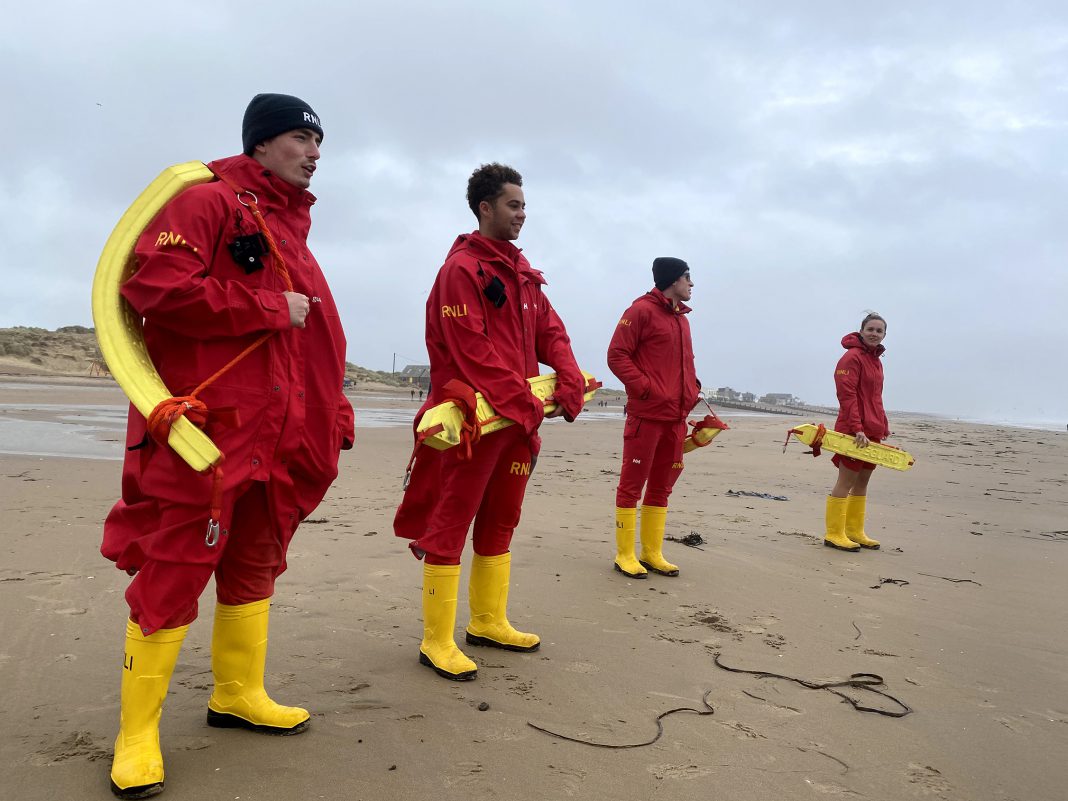2020 has been a challenging year for the RNLI lifeguard service, but our fantastic lifeguards have done a brilliant job in keeping our beaches safe amidst the Covid-19 pandemic.
The summer was extremely busy because of the hot weather and the need people felt to escape the cities after lockdown was eased. Fortunately, RNLI lifeguards are comprehensively trained to the highest standards, the training is extensive and it qualifies the lifeguards in lifesaving, casualty care and ensures a high level of fitness.
The recruits need to swim 400 metres (16 lengths) in seven and a half minutes with the first 200 metres (8 lengths) also needing to be under three and a half minutes. They also carry out an “under and over” where they swim 25 metres under water with no breathing and then swim 25 metres front crawl, and have to complete all this in under 50 seconds.
Also, they carry out a 200 metre run which needs to be completed in under 40 seconds. However, this year due to Covid-19 they had to adapt the fitness standards to a 200-metre run followed by a 200 metre sea swim, and then finished with another 200 metre run under 8 minutes. This fitness method is internationally recognized in lifeguarding.
Their experience this year provided an invaluable on-the-job training and will have stood them in good stead for future years. They faced all the challenges that the sea and shoreline could throw at them and as a result they coped with flying colours.
Prevention is a key target
Much of the lifeguards’ job is preventative. The RNLI lifeguards are there to minimise stress, providing a constant watch on the water and the shoreline and also offering advice. As a result there are fewer serious incidents to deal with.
Most people think of a day out at the beach with friends and family as a lovely escape. The sea looks innocent and sparkling in the sun, but it has many other faces. Tranquil waters can turn in an instant, and changing tides can often catch people out.
Low tide is the most challenging scenario for missing children as they wander down to the water-line, often 600 metres from the sandy beach, and have a paddle with a sibling. When they realise that the tide is coming in they decide to go back to their parents, but are thrown into confusion with so many people on the beach and cannot find them. So parents are advised to keep their children in their sight at all times and to respect the water.
This year’s busiest beaches
Josh, an RNLI lifeguard this summer. said that, although starting later than in previous years, he and his colleagues had performed more rescues and assists than previously. “Overall, I could not be prouder of the team I have worked with this season and how it coped with the huge demands being made of it daily”, he said.
Hugh Richardson, RNLI Lead Lifeguard Supervisor for East Sussex, summed up the challenging but highly successful summer. “This year has been a testament to the RNLI’s ability to adapt its lifesaving services through these unprecedented times. This year we have had the busiest beaches since the East Sussex service was rolled out.
“As a supervisor I couldn’t be more proud of the incredible work my team carried out this year. Each team member’s selfless approach to lifeguarding did not let C-19 affect their ability to save lives at sea.”
Image Credits: kt bruce .



